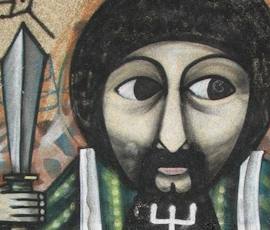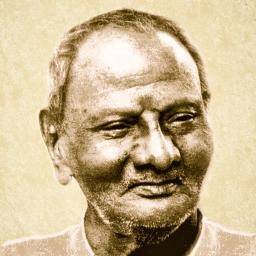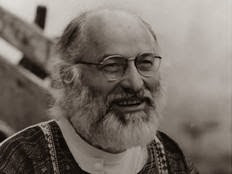
"The false good are the thieves of virtue" (Lin Yutang)
Delegating the management of one's own existence to a "government" or "church" is tantamount to abandoning one's responsibilities based on the fact that there are people other than ourselves who really know how to do things.
This obviously applies in every field of human existence but for now we leave aside the "religious" aspect of this "defeatist" attitude and of delegating to others what belongs to us ... and let us turn our attention to the political aspect.
A political party, and consequently a government, is apparently founded for the good of the people ... but in reality it becomes a corporation that only serves itself. An administration keeps things under its control and proliferates laws of ever increasing complexity and incomprehensibility. In effect, it hinders productive work by asking for so many accounts and bureaucratic cavilry so that recording what has to been done becomes more important than what has actually been done.
In this way, increasing the bureaucracy and the quibbles, we can go further and further into abstraction ... nevertheless in the growing anguish concerning overpopulation, cultural massification, mystification in occult economic interests, pollution and ecological imbalance, potential disasters of military technological increase, etc. only rarely can we recognize that our governments have become destructive of humanitarian institutions.
Governments - as stated by Alan W. Watts - remain mired in an attempt to satisfy an ever-growing alienation from the practical life and primary needs of man, suffocated and paralyzed, as they are, under the mountains of complications of balance sheets and paperwork.
The next consideration, not to have to repeat the mistakes of the past, is that neither the individual nor the society can pull themselves out of the current situation in an autonomous way and using force. Even if today we are witnessing a development in this sense of the push for social change ...
Until we use force, both physical and moral or religious, in an attempt to improve ourselves and the world .. we will actually waste energy that could to be otherwise used for things that really can be done ..
We need to change our life approach and the consideration of our participation in all things. In deep ecology and lay spirituality there is an indication towards the recovery of trust in oneself and in others. The new vision, the new method, can not be aggressive or passive, it is not a sentimental attitude.
It should be recognized that in some cases the use of force may be necessary ... but it will be a mild, educational violence ... resembling the severity of the mother who intends to educate her child and not repress him.
Deep ecology and lay spirituality, implemented in the field of politics and administration of public affairs, lead not to the satisfaction of blind popular rivalse, not to the implementation of a "leveling justice", but in favor of "human generosity". That is not mere benevolence and forgiveness, as one might suppose, but the maintenance of honesty and "human" qualities in their fullness. As Ezra Pound said: "Honesty is the wealth of a nation".
The balanced severity and correctness, that we could define in matristic terms "maternal intelligence", requires a great discriminative capacity and the road towards it is difficult to reach, accustomed as we are to delegating to every external justice (governmental and religious) every emendatory function .
Therefore, if a healthy man tries to achieve spiritual and political maturity, he will necessarily have to redeem himself from any coercive model currently present in society ... But we can not call this process "anarchy" as a definite direction towards the "common good" is assumed. No longer measuring things through the model of justice "of codicils" but bringing the human to its highest level of responsibility. In which the actions are not consequent to pre-established courses or taboos, the contingencies and the wisdom and honesty acquired indicate at the moment what is the right thing to do ....
In other words, a human being aware of belonging to an inseparable vital and spiritual context does not need to embody predetermined models of "righteousness", he is not a "good-hearted man", not even a presumptuous, a pedant, but he recognizes that some errors may occur. in the pursuit of genuine human nature. Errors - if not repeated - are the spice of life. They are the indication of the right path to follow.
In fact, he who masquerades as an observant lawyer is a hypocrite and a false public man (both politically and religiously), indeed he is completely devoid of "humor", he can not laugh at himself and others, and in the same way, and does not let its human nature be completed and come to maturity. He, meander, stops at the "form" and consequently is condemned to transgress even that (perhaps secretly) remaining unconsciously bound to his own shadows.
A legalist will simply be a nosy and a buyer of "presumed merits" on the basis of his adherence to a political or religious faith.
Who bases justice on strict submission to linear regulations will never be able to perceive the truth behind the forms. These hypothetical good rulers, so serious and considerate of their just principles (or even worse of their sordid interests) justify every iniquity by force from political or religious reasons. Poor people, they will never be able to enjoy a healthy and lay "spirit", much less harmful than their subjection to ideology (or worse still to interest).
And one of the worst ideologies, in this historical moment, is that related to the concept of "useful" and "good", which even surpasses any other political and religious conviction .. and it is in the name of profit and utility that the human society is sinking towards the loss of the soul and the ability to understand and to want. This ideology, let's call it "profitable", so loved by the accountants of life, risks to force more and more man towards the renunciation of every humanity and discriminating ability. And with the loss of intelligence, the loss of the survival capacity of the human species also takes over.
Paolo D'Arpini - spiritolaico@gmail.com

Testo italiano
“I falsi buoni sono i ladri della virtù” (Lin Yutang)
Delegare la gestione della propria esistenza ad un “governo” o ad una “chiesa” equivale ad abbandonare le proprie responsabilità basandosi sul fatto che vi sono persone altre da noi stessi che veramente sanno come fare a mandare avanti le cose.
Questo ovviamente vale in ogni campo dell’esistenza umana ma per il momento lasciamo da parte l’aspetto “religioso” di questo atteggiamento “rinunciatario” e di delega all’altro... e rivolgiamo la nostra attenzione all’aspetto politico.
Un partito politico, e di conseguenza un governo, viene apparentemente fondato per il bene del popolo ma in realtà diviene una corporazione che serve solo a se stessa.
Una amministrazione tiene le cose sotto il suo controllo e prolifera leggi di una sempre crescente complessità ed incomprensibilità. In effetti ostacola il lavoro produttivo domandando tanti rendiconti sicché il registrare quanto è stato fatto diventa più importante di quel che è stato realmente fatto. In questo modo, incrementando la burocrazia ed i cavilli, si può andare sempre più in là nell’astrazione… tuttavia nella crescente angoscia riguardante la sovrappopolazione, la massificazione culturale, la mistificazione negli interessi economici occulti, l’inquinamento e lo squilibrio ecologico, i disastri potenziali dell’incremento tecnologico militaresco, etc. soltanto di rado siamo in grado di riconoscere che i nostri governi sono diventati i veri distruttori delle istituzioni umanitarie.
I governi -come affermava Alan W. Watts- restano impantanati nel tentativo di soddisfare una sempre crescente alienazione dalla vita pratica e dalle esigenze primarie dell’uomo, soffocati e paralizzati, come sono, sotto montagne di complicazioni di bilanci e di scartoffie.
La considerazione successiva, per non dover ripetere gli errori del passato, è che né l’individuo né la società possono tirarsi fuori dalla situazione attuale in modo autonomo e facendo uso della forza. Pur che ancora oggi assistiamo ad uno svolgimento in tal senso della spinta al cambiamento sociale… Sino a quando faremo uso della forza, sia fisica che morale o religiosa, nel tentativo di migliorare noi stessi ed il mondo andremo in verità sprecando energia che potrebbe essere altrimenti usata per cose che realmente possono essere fatte.
Occorre cambiare il nostro approccio di vita e la considerazione della nostra partecipazione all’insieme delle cose. Nell’ecologia profonda e nella spiritualità laica c’è l’indicazione verso il recupero della fiducia in se stessi e negli altri. La nuova visione, il nuovo metodo, non può essere aggressivo e nemmeno passivo, non è un atteggiamento sentimentale. Occorre riconoscere che in alcuni casi l’uso della forza può essere necessario... ma sarà una violenza mite, educativa.. somigliante alla severità della madre che intende educare il figlio e non reprimerlo.
Ecologia profonda e spiritualità laica, attuate nel campo della politica e dell’amministrazione della cosa pubblica, conducono non alla soddisfazione di cieche rivalse popolari, non all’attuazione di una “giustizia livellatrice”, bensì a favore della “generosità umana”. Che non è semplice benevolenza e perdono, come si potrebbe supporre, ma il mantenimento dell’onestà e delle qualità “umane” nella loro pienezza.
Come diceva Ezra Pound: “L’onestà è la ricchezza di una nazione”.
L’equilibrata severità e correttezza, che potremmo definire in termini matristici “intelligenza minervina”, richiede una grande capacità discriminativa e la strada verso di essa è difficile da raggiungere, abituati come siamo a delegare alla giustizia esterna (governativa e religiosa) ogni funzione emendatrice.
Perciò se un uomo integro cerca di raggiungere la maturazione spirituale e politica dovrà necessariamente riscattarsi da ogni modello prefissato attualmente presente nella società… Non possiamo però chiamare questo processo “anarchia” in quanto si presuppone un indirizzo definito rivolto al “bene comune”. Non più misurando le cose attraverso il modello della giustizia “dei codicilli” ma portando l’umano al suo massimo livello di responsabilità. In cui le azioni non sono conseguenti a corsi precostituiti o tabù, le contingenze e la saggezza ed onestà acquisita indicano al momento quale sia la cosa giusta da fare…
In altre parole un essere umano consapevole di appartenere ad un contesto vitale e spirituale inscindibile non ha bisogno di incarnare modelli prefissati di “rettitudine”, non è un “buonista”, e nemmeno un presuntuoso, un pedante, ma riconosce che possono avvenire alcuni errori nel perseguimento della genuina natura umana. Gli errori -se non ripetuti- sono il sale della vita. Sono l’indicazione del retto percorso da seguire.
Infatti chi si maschera da ligio osservante delle leggi è un ipocrita ed un falso uomo pubblico (sia in senso politico che religioso), invero è completamente privo di “umorismo”, non sa ridere di se stesso e degli altri ed allo stesso modo, e non lascia che la sua natura umana possa completarsi e giungere a maturazione. Egli, meschinello, si ferma alla “forma” e di conseguenza è condannato a trasgredire anche quella (forse in segreto) restando inconsciamente legato alle proprie ombre. Un legalista sarà semplicemente un ficcanaso ed un acquisitore di “meriti presunti”, sulla base della sua adesione ad una fede politica o religiosa.
Chi basa la giustizia sulla rigorosa sottomissione a regolamentazioni lineari non sarà mai in grado di percepire la verità dietro le forme.
Questi ipotetici buoni governanti, così seri e riguardosi dei loro giusti principi (o peggio ancora dei loro sordidi interessi) giustificano ogni iniquità con la forza dalle ragioni politiche o religiose. Poveretti, non saranno mai in grado di godere di un sano “spirito” libero e laico, assai meno nocivo della loro sudditanza all’ideologia (o peggio ancora all’interesse).
Ed una una delle peggiori ideologie, in questo momento storico, è quella relativa al concetto di “utile” e di “buono”, che persino supera ogni altra convinzione politica e religiosa... Ed è in nome dell’utilità e della bontà che la società umana va sprofondando verso la perdita dell’anima e della capacità d’intendere e di volere. Questa ideologia, chiamiamola pure “profittevole”, così amata dai ragionieri della vita, rischia di forzare sempre più l’uomo in direzione della rinuncia ad ogni umanità e capacità discriminante. E con la perdita dell’intelligenza subentra anche la perdita della capacità di sopravvivenza della specie umana.
Paolo D’Arpini - spiritolaico@gmail.com








